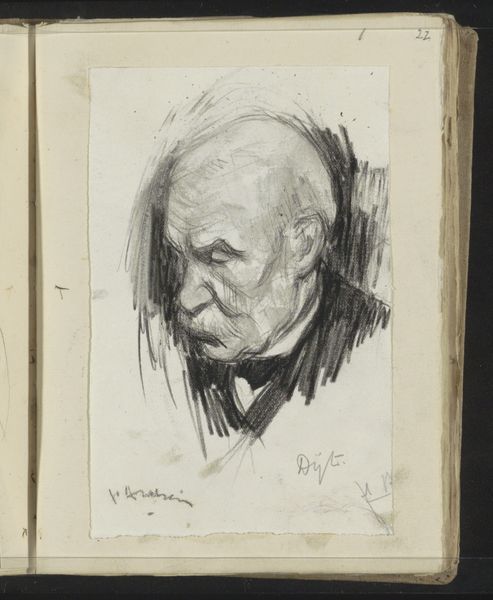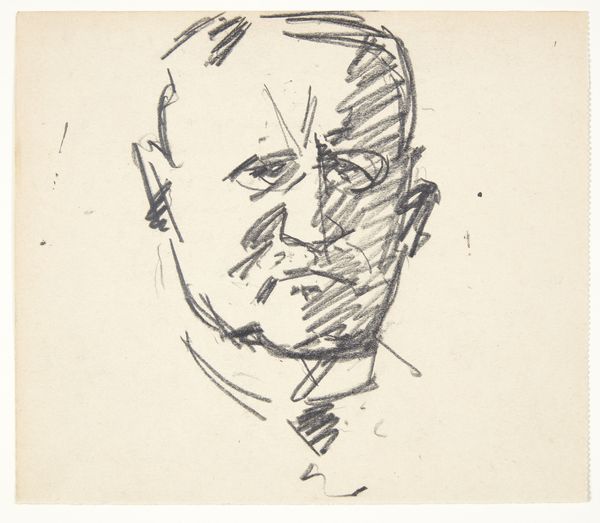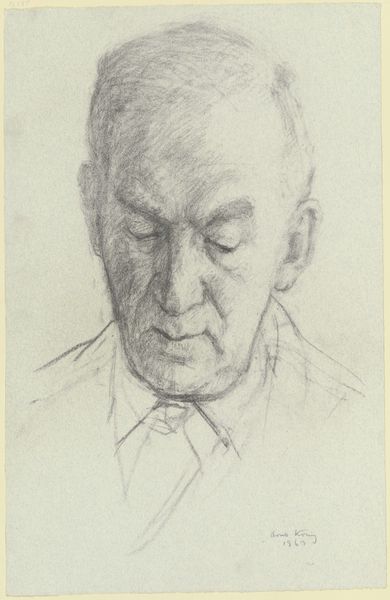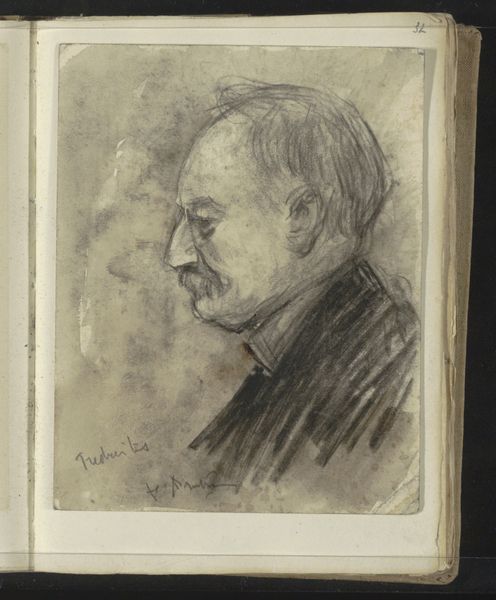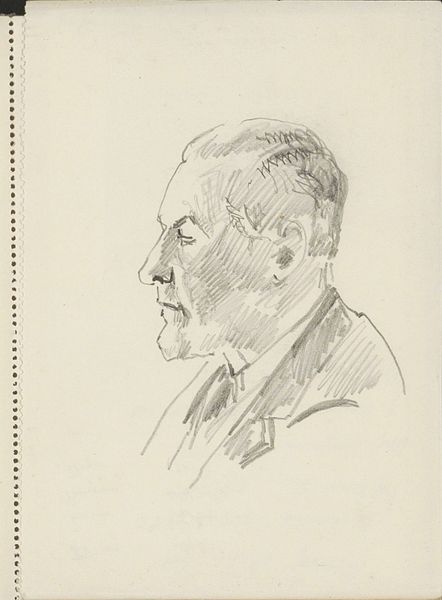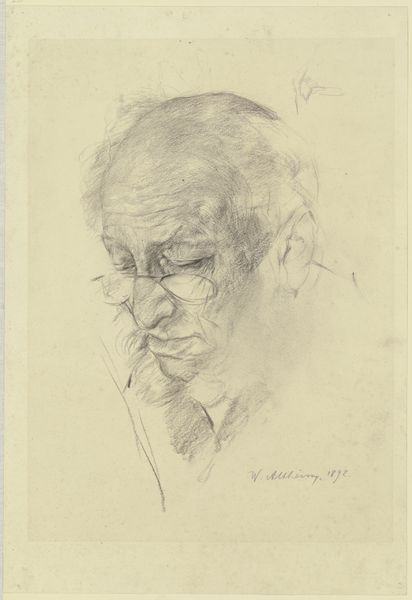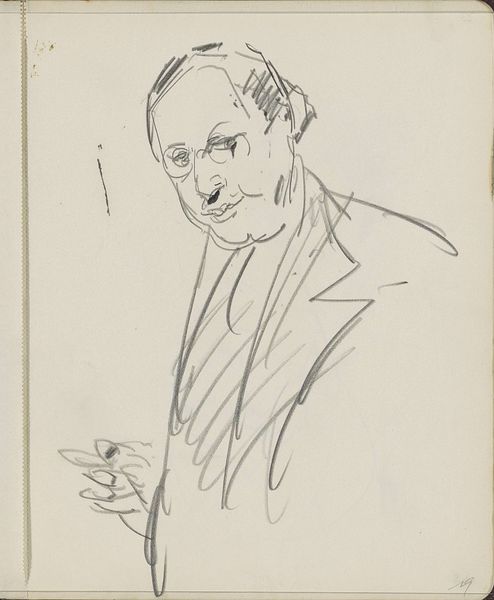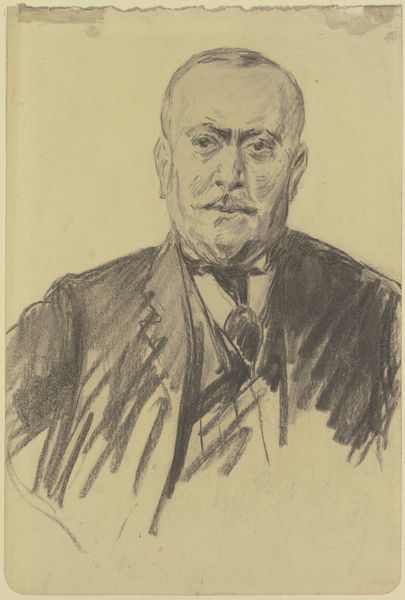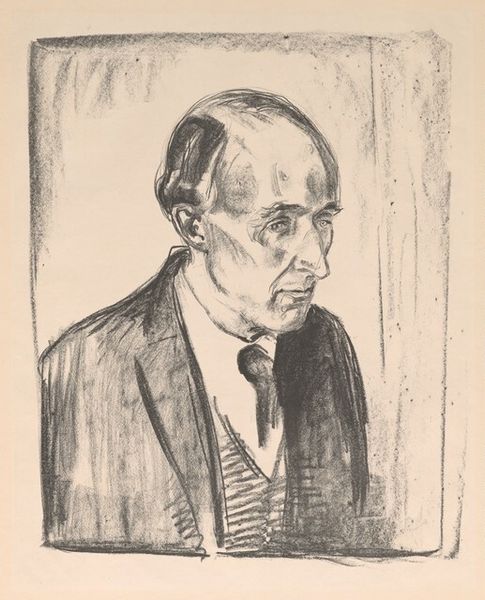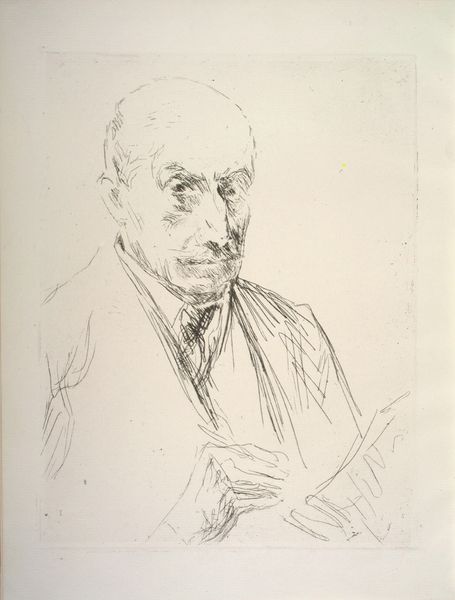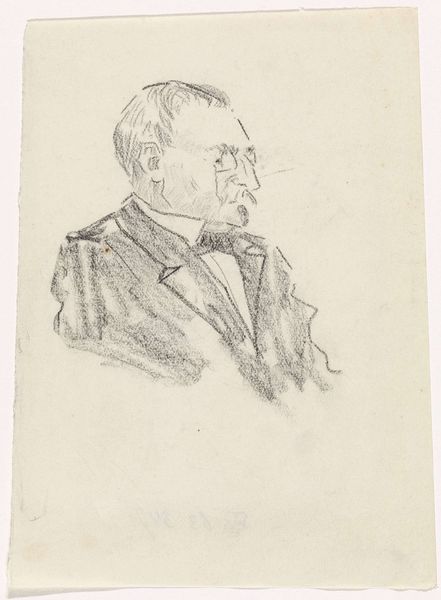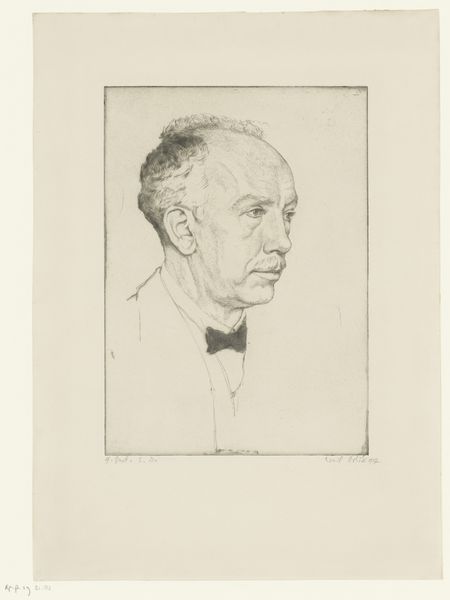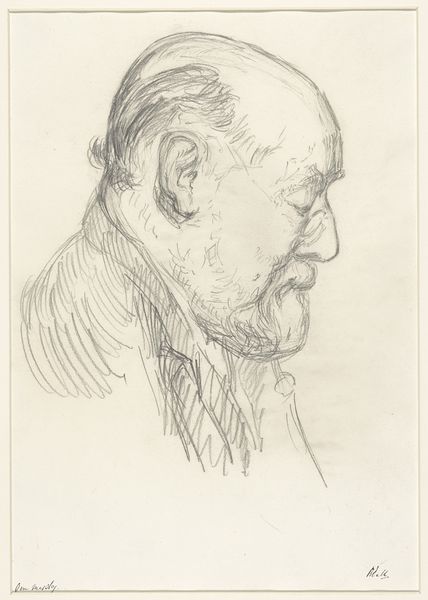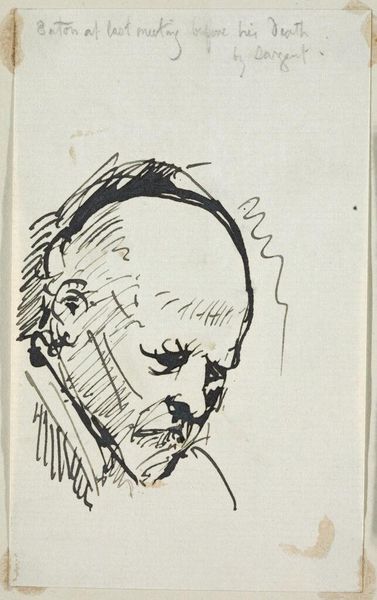
drawing, pencil
#
portrait
#
drawing
#
imaginative character sketch
#
toned paper
#
self-portrait
#
quirky sketch
#
sketch book
#
personal sketchbook
#
idea generation sketch
#
sketchwork
#
pencil
#
sketchbook drawing
#
storyboard and sketchbook work
#
sketchbook art
#
realism
Copyright: Rijks Museum: Open Domain
Editor: So, this is "Portret van een rokende man, genaamd Horst" or "Portrait of a smoking man, named Horst" by Floris Arntzenius, probably from sometime between 1883 and 1914. It’s a pencil drawing on toned paper, and it feels very intimate, almost like a glimpse into the artist's sketchbook. What catches your eye when you look at this drawing? Curator: The smoke itself, curling near his face, suggests ephemeral thoughts or dreams. Consider the loaded history of smoking. Is it a symbol of worldliness, of leisurely contemplation, or a premonition of decay and mortality? Editor: That’s interesting. I hadn’t really thought about the smoking aspect as symbolic. Curator: Look also at the way the artist has rendered Horst's features. The sharp lines around the eyes and mouth give him a sense of world-weariness, perhaps even resignation. Do you see how the slight asymmetry in his face contributes to his character? Editor: Yes, it’s not idealized at all. It feels very... real. Almost vulnerable. Is that realism typical for portraiture from that era? Curator: In some circles. However, it’s fascinating how Arntzenius chose to present him this way. What narratives do you think he might be hinting at by naming the man, "Horst?" The name anchors him to a specific identity. Is it simply a portrait, or is Arntzenius exploring the universal experience of human frailty through this particular individual? Does the quick medium reinforce a transient moment or emotion? Editor: It makes you wonder about the man behind the portrait, what his life was like. I definitely see more depth than I did at first glance. Thanks, I learned a lot. Curator: Indeed. These kinds of portraits remind us that even seemingly simple images can hold layers of meaning and cultural context, sparking curiosity and conversation.
Comments
No comments
Be the first to comment and join the conversation on the ultimate creative platform.
